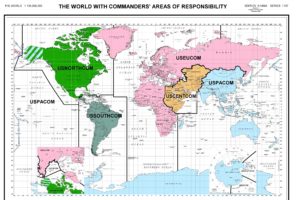In nearly every Defense Base Act claim that involves an “unscheduled” injury, the parties will debate the level of work the claimant can perform after his injury. Sometimes, the employer and carrier will argue that the claimant can perform overseas contracting work…just not in a “war zone.” But, is “war-zone” work versus “non-war zone” work really the distinction that should be drawn? Proving Suitable Alternative Employment: If an injured employee establishes that they cannot return to the job that they held at the time of injury, then they are presumed to be totally disabled. To rebut the presumption, employers and insurance carriers often hire vocational experts to prepare a labor market survey. According to the vocational expert, the labor market survey will provide a list of jobs which the injured worker can allegedly perform. These jobs are commonly referred to as suitable alternative employment. Not every job is suitable forRead more
BRB Addresses Return to Work Offer and SAE
To establish a claim of total disability, a claimant must demonstrate an inability to return to his usual work as a result of his injury. This can be established by comparing the claimant’s medical restrictions to their job duties. If the claimant establishes total disability, then the burden shifts to the employer to show that the claimant can perform his usual job or, alternatively, the claimant can return to suitable alternative employment (or “SAE”). “Suitable” means appropriate for the claimant considering his age, education, vocational history, and physical capabilities. Recently, in an unpublished decision, the Benefits Review Board addressed a sticky situation. What happens when an employer offers the claimant their old job (i.e., their usual and customary employment), purportedly in reliance of a functional capacity evaluation that established the claimant’s work restrictions? The claimant in Burton v. ManTech International injured his right knee and left shoulder while working inRead more
Claimant Remained Totally Disabled Despite Labor Market Surveys
The Sixth Circuit published a new Longshore and Harbor Workers’ Compensation Act (“LHWCA”) decision discussing Claimant’s vocational ability–or lack of ability–and Employer’s deficient labor market survey. This was the second time the Sixth Circuit heard the claim, and the court reused its earlier recitation of the facts. Claimant worked for Employer as a senior barge mechanic. After twenty-five years of employment, Claimant alleged a shoulder injury. Over the course of three years, Claimant treated with a number of health professionals. One of those physician’s, Dr. Goodwin, determined that Claimant could not perform his usual work as a senior barge mechanic. Thereafter, Employer’s vocational expert prepared a labor market survey identifying nine alternate positions that Claimant could perform. A few months later, the vocational expert identified ten more jobs. Claimant did not contact any of these employers because he had a foot gout ailment. Following a 2008 trial, the assigned Administrative Law JudgeRead more



